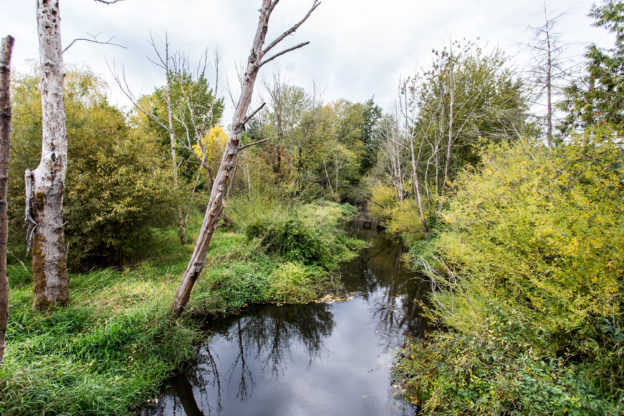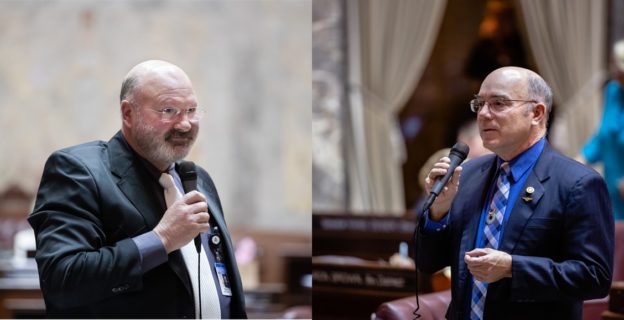Ensuring a robust salmon recovery has become a daunting and politicized task.The latest proposal championed by the Office of the Governor is an example of the bad practice of creating more conflict rather than offering real solutions. The legislation amounts to an unethical taking of private property that will do nothing to aid salmon recovery, while allowing politically connected interests who are doing more harm to those efforts off the hook. The proposals also conflict with the Growth Management Act’s goals of preserving valuable farmland.
The bills working their way through the Legislature, Senate Bill 5727, SB 5665 and a House companion bill all have the same language with the stated goal of increasing riparian habitat. They operate under the faulty assumption that these buffers are the universal solution to increase salmon populations. Studies show, however, that other issues are likely having a more significant impact on salmon returns and riparian buffer zones are far removed from these causes.
It makes no sense to require property owners along the Skagit River to create and pay for large buffers of up to 200 feet on both side of a body of water. Failing to adhere to the onerous requirements in the legislation could mean significant financial penalties of $10,000 a day per instance of violation, according to the bill. Private property owners will be burdened with an extreme cost to achieve an ideological goal that will not help our salmon recovery efforts. It completely ignores the progress and outcomes of a voluntary stewardship program by those who call the Skagit River delta home.
There is a larger issue being ignored that could more immediately help salmon along the Skagit River. Namely, that Seattle City Light’s three dams along the Skagit River have no fish passages to allow spawning salmon to return home. An area tribe is currently suing the public entity over this issue and, incredibly, City Light continues to obfuscate and shirk the responsibility of having salmon recovery requirements imposed on their dams.
Rather than the government taking people’s property rights away, Seattle City Light could practice what they preach and build the infrastructure to help salmon get through their dams, opening approximately 40% of the river that is currently inaccessible for spawning. Putting the onus on private citizens, without any evidence that this approach will work while remaining silent about the complete inaccessibility of the watershed caused by Seattle City Light, is the height of hypocrisy. What is more, the governor’s proposed budget grants millions in state taxpayer money to City Light without any sideboards on how they should spend it to finally address the salmon passage issue.
Those whose lives and livelihoods are so intimately connected to the bounty the Skagit River provides know what they are doing. They’ve been doing it without the heavy hand of state government. Instead of acknowledgment and consultation they are met with contempt. Now more than ever, we need a rational, evidence-based approach to solve these issues so that we can have more salmon, not more conflict.












